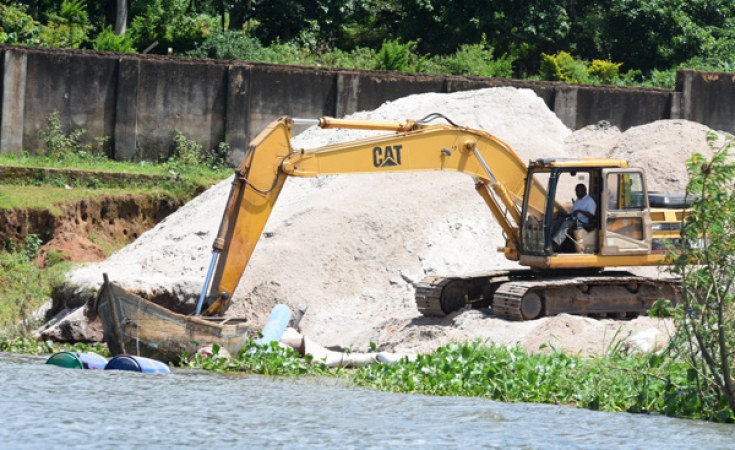The Lake Victoria basin ecosystem is experiencing unprecedented levels of environmental degradation. This is occasioned by deforestation, reclamation of wetlands for agriculture, disposal of untreated industrial effluent and unplanned human settlement
The latest entrant on the list of human activities that degrade the Lake Victoria Basin ecosystem is industrial-scale sand mining. This will damage the last vestiges of the lake basin ecosystem. Sand is a natural aggregate formed by rock erosion and takes thousands of years to form.
Different types of sand have specific properties for human usage - construction, glass manufacturing, foundry industry, metal production, chemical production, ceramics, paint and coatings, filtration and water production, oil and gas recovery, recreational products, etc.
Globally, sand mining is gaining currency as an ecological cancer, which has left a trail of ecological disasters in the fragile ecosystems in Asia, Australia, Europe and Africa. Yet sand is increasingly becoming an important recourse. A report published by United Nations Environment Programme (UNEP), says "Sand and gravel represent the highest volume of raw materials used on earth after water" and warns that that "their use greatly exceeds their natural renewal rates".
In Uganda, sand mining activities are reportedly taking place in riverine (river) and lacustrine (lake) wetlands in the districts of Kalungu (Lwera) and Mpigi and Wakiso. Being a lucrative industry, excavation sites might spring up in other riparian districts. There are ecologically damaging sand mining schemes disguised as ship-building and coastal water dredging projects (purportedly aimed to improve navigation on Lake Victoria.
National Environmental Management Authority (Nema) should guide on the exploitation of this fine resource whose mining impacts negatively on the fragile ecosystem of the Lake Victoria basin.
In his article titled, 'Environmental Impacts of Sand Exploitation. Analysis of Sand Market (2017)', Gavriletea contends that 'Underdeveloped and developing countries, where governments often lack the capacity to establish and enforce environmental regulations, are usually confronted with illegal sand mining operations, leading to a series of environmental issues and threats... '
Over exploitation of lake and river sand threatens the very existence of the ecosystems and may lead to significant environmental degradation and ecological disorders.
Impact of sand mining can be broadly classified into four categories - physical, ecological, water quality and social. Physical impact include the undercutting and collapse of river banks and lake shores, loss of value of adjacent land and collapsing structures, upstream erosion as a result of an increase in channel slope and changes in flow velocity, and downstream erosion due to increased carrying capacity of the stream, downstream changes in patterns of deposition, and changes in channel bed and habitat type.
The mining of river sand leads to the removal of channel substrate, re-suspension of streambed sediment, clearance of vegetation, and stockpiling on the streambed. These have ecological impact namely, the direct loss of stream reserve habitat, disturbances of species attached to streambed deposits, reduced light penetration, reduced primary production, and reduced fish feeding and breeding opportunities.
In addition, sand mining is likely to fuel social and community conflicts, since the mining companies tend to hire non-residents (including armed personnel) to supervise their illicit activities. Overall, unregulated exploitation and export (yes, sand is exported) of sand is likely to lead to increased costs in the local construction industry.
The challenge of a weak regulatory regime is compounded by the fact that even the existing laws are not enforced.
So, this is a call to Nema. They should come out and guide the nation on this sand mining. Otherwise they would be failing in their constitutional mandate to take in the lies of the sand miners who profile themselves as investors.
Dr Kayiso is the programme manager, research, documentation and strategic information at Inter-Religious Council of Uganda.


